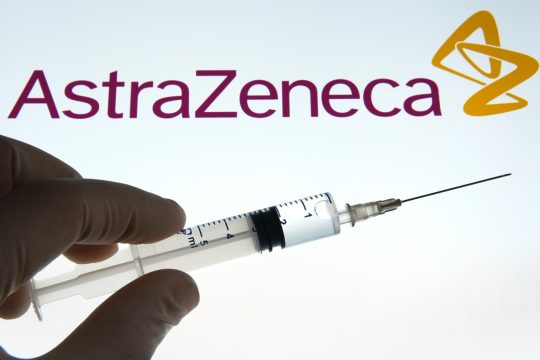Advertisment
ASCO 2012 Report – Regorafenib improves outcomes in patients with GIST
by Marybeth Burke – Regorafenib significantly improved progression-free survival (PFS) and disease control rate (DCR) in patients with advanced gastrointestinal stromal tumours (GIST) that progress due to resistance to other available treatment options such as imatinib (IM) and sunitinib (SU), researchers announced at the American Society of Clinical Oncology (ASCO) annual conference in Chicago in June.
“If approved, regorafenib will fulfill an urgent unmet need for patients with GIST who have exhausted all other options,” said George Demetri, MD, Director of the Ludwig Center and Sarcoma Center at Dana-Farber Cancer Institute and Harvard Medical School in Boston.
“Targeted therapy has revolutionized treatment for this rare cancer, but we’ve been on the hunt for additional effective treatments for the 85% of patients whose cancer eventually develops resistance to the only two available therapies. Regorafenib appears to target GIST tumours in a different and possibly more powerful way than the current FDA-approved therapies, making it a potentially significant new option to help patients,” Dr Demetri said.
GRID Trial Abstract #LBA10008
The oral multikinase inhibitor regorafenib demonstrated substantial activity in a Phase II trial in patients with GIST after treatment failed with imatinib and sunitinib. This Phase III randomized, double-blind, placebo-controlled trial was designed to evaluate the efficacy and safety of regorafenib for this unmet need, according to the abstract.
Eligible patients for the study has metastatic and/or unresectable GIST, objective failure of both prior IM and SU (progressive disease (PD) on, or intolerance to, IM and PD on SU), ³1 measurable lesion, ECOG performance status O or 1. Patients were randomized 2:1 to receive best supportive care plus either regorafenib 160mg po once daily (3 weeks on 1/week off) or placebo (PL).
Primary endpoint was PFS (modified RECIST 1.1, independent central review). The secondary endpoints included overall survival (OS), (DCR, defined as rate of partial response (PR) plus stable disease (SD) lasting for ³12weeks), response rate and duration, safety, and correlative genotype analyses, according to the study. “At the time of PD, patients were eligible for unblinding and crossover to open-label regorafenib.”
Researchers randomized 199 patients (regorafenib 133, placebo 66). Median PFS was 4.8 months for regorafenib vs. 0.9 months for placebo. Hazard ratio for PFS was 0.27, p<0.0001. “PFS rates at 3 and 6 months were 60% and 38% for regorafenib vs. 11% and 0% for placebo,” the study concluded. DCR was 53% for the regorafenib arm and 9% for placebo. The hazard ratio for OS was 0.77 (p=20) with 85% placebo patients having crossed over to regorafenib.
“The most common >Grade 3 treatment-emergent AEs (adverse events) in the regorafenib arm during double-blind study were hypertension (28%), hand-foot skin reaction (21%) and diarrhoea (8%),” the study says.





